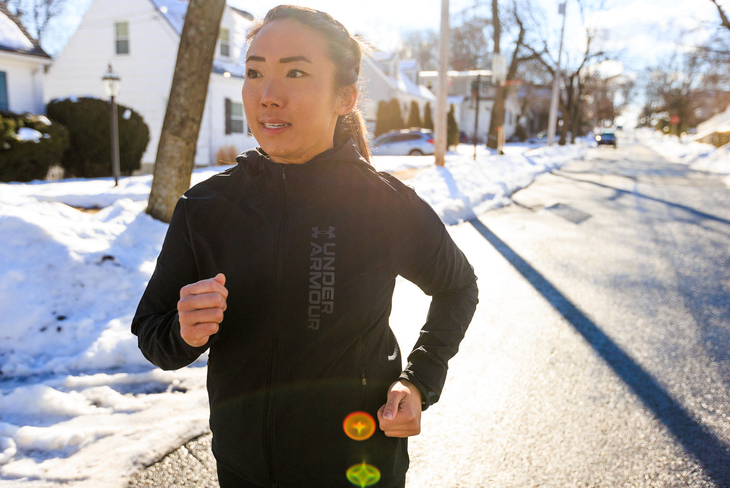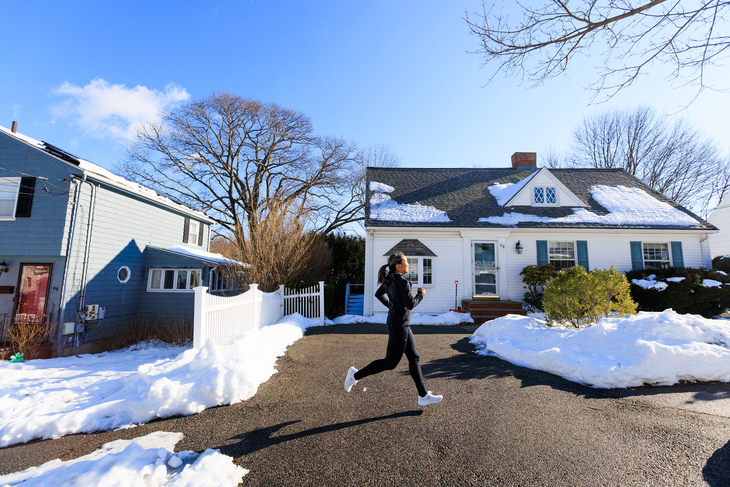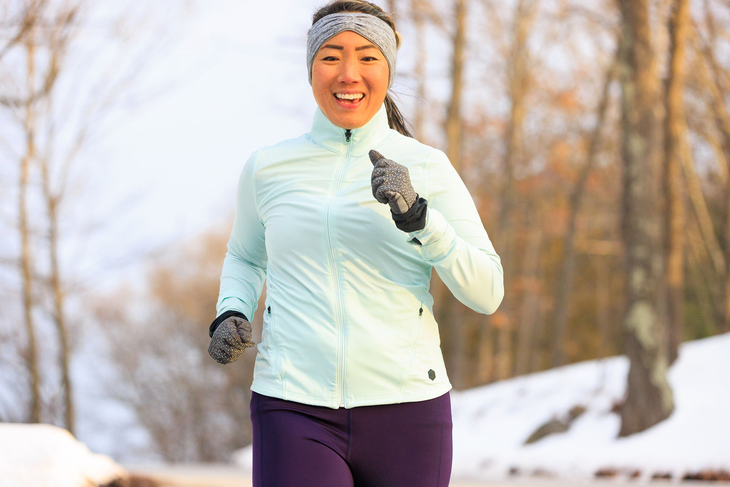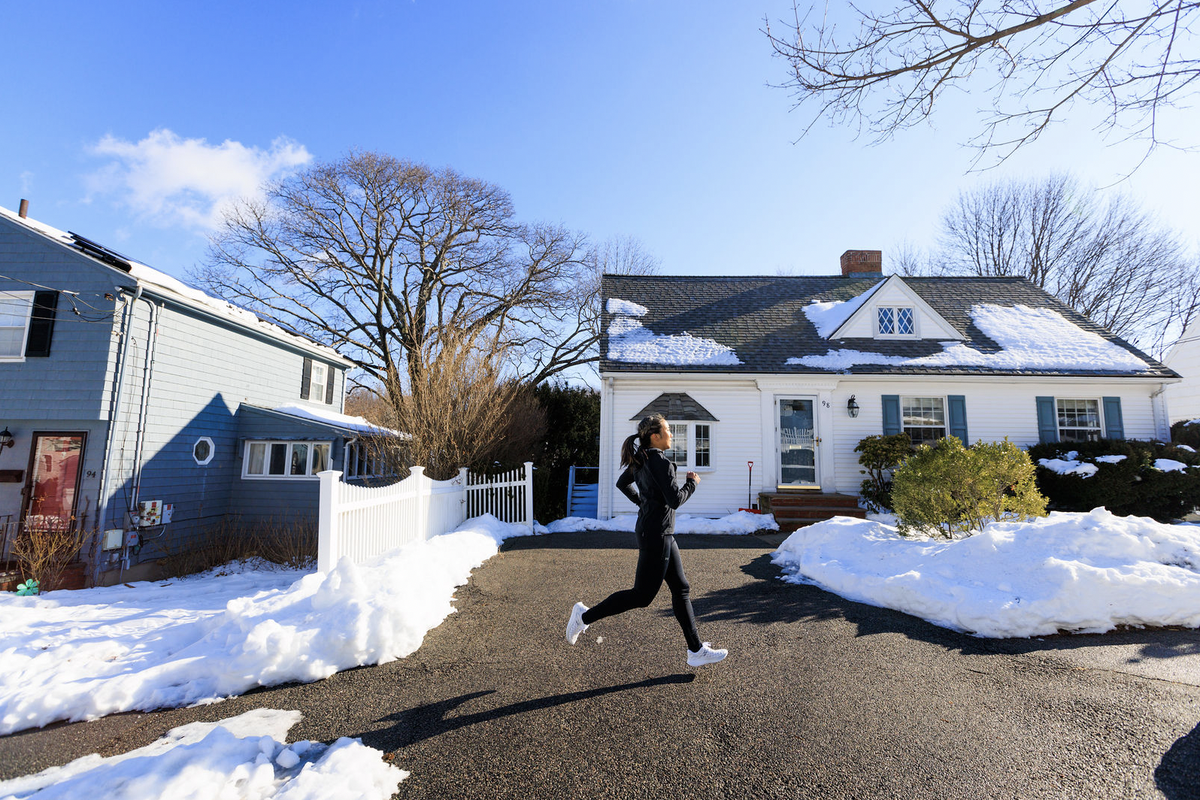No products in the cart.
Outdoor Adventure
Runner Carolyn Su Creates Space for People of Color to Feel at Home in the Sport
The Limitless series is presented in partnership with Under Armour
Like many runners, Carolyn Su was initially drawn to the sport as a form of exercise. Su was in college and had been struggling with an eating disorder. At the time, “I just needed to monitor calories in versus calories out,” she says. “It wasn’t about feeling strong or being outside.” But that changed as she began running longer distances and eventually, her first marathon. “Almost in an ironic way, it was through running that I was forced to learn about my body’s needs and how to care for it and my health,” she says. Running eventually helped her overcome her disordered eating. Now, at 37, Su is an experienced endurance runner who has completed marathons, half-marathons, and most recently, a multi-day trail race. Running became a source of empowerment, self-awareness, and growth for Su. But for much of her running career, she also contended with a lack of acceptance and inclusion for women of color in the running community.

“Whenever it came to the social aspects, it’s been a negative experience,” Su says. Wearing a grey sweatshirt that reads “Phenomenally Asian,” the Taiwanese-American mother of two shares some of her memories of alienation in running. Women’s events where she’d notice other runners—almost all of them white—seemed to have a hard time making eye contact with her instead gravitating to her white friends. Race expos where almost no one at the booths would approach her. Races where spectators seemed to cheer primarily for the white runners around her. Conversations with running podcasters and industry professionals in which she’d ask them to highlight more diverse athletes and saw little to no change.
In 2018, Su decided that if the running industry and community were going to continue to ignore her and runners like her, she would create a place for them herself. She started Diverse We Run, an Instagram account that shares the experiences of Black and brown runners through weekly features published as in-depth Instagram posts. Today, Diverse We Run has grown to nearly 13,000 followers, and has highlighted the sometimes deeply personal stories of over 130 runners.
“My college was majority white, and, being a fuller-bodied Latina, I was bullied for being a different size from my thinner-bodied [running] teammates,” writes Regina Lopez, on the account’s 129th feature.
“As a Black man, I’m always conscientious of how others might perceive me while I’m out running. I make sure to greet people with a smile and friendly ‘good morning!’ in order to not appear threatening,” writes CJ Langley, in feature 86.
The goal of Diverse We Run goes beyond showing the running community that runners of color exist. Su wants the account to give runners of color a way to share and validate their lived experiences. “There are a lot of people who have never shared this part of their running journey before, how their race actually affects the way they show up in running or how it has impacted the way other people treat them,” Su says. “Being featured on Diverse We Run is the first time they’ve been open about that aspect, and then to have people comment or reach out to them after reading their stories really helps that person, and the people who have read their story, feel seen.” Feeling seen can enable runners of color to be more comfortable being themselves, she says, instead of code switching or filtering their experiences to fit a mold. Certainly, because of Diverse We Run, “I now feel a deeper sense of connection to the running community,” she says.

Representation can also help dispel cultural misbeliefs that discourage people from running, Su says. For example, she points out that within Asian communities, there’s a cultural belief that endurance sports are excessively hard on the body, particularly for women. “Every time I finish a race, my mom asks me if that’s the last one, if I got it out of my system,” she laughs. Within Black communities, there’s an idea that running is “white people shit,” as Isael McCall writes in Diverse We Run’s 124th feature. Dispelling these myths can not only promote health and wellbeing in underrepresented communities, says Su, who once worked as a registered dietitian, but it can unlock all the other life changing aspects of the sport, too.
Su herself has seen running transform her mindset. Besides putting her in touch with her body’s needs and inevitable changes, the sport has also been an avenue through which to curb her tendency toward perfectionism. In the past, “I’d be incredibly hard on myself if I didn’t execute a workout, or during a race if things went unexpectedly and I started to struggle,” she says. “But there’s been a long journey and process of changing my self-talk and writing down what I’m proud of for every workout.”
The progress Su made culminated last summer during the six-day TransRockies stage race in Colorado, her first trail race. It was the hardest physical endeavor she’d taken on and, due to an injury, she only had a few months to train. By day three, at altitude, her body was telling her to stop. In the final ten miles of the stage, Su slowed to a walk. Under a clear sky and surrounded by beautiful wildflowers, she reflected upon whether she had accomplished her goals. She had wanted to represent runners of color and show them this was something they could do, and through documenting her journey and standing on the start line the past three days, she had. There was no point in beating her body up for the sake of achievement. She decided to withdraw. It was a milestone, she says, that she gave herself permission to change her plans.

Looking forward, Su plans to train for more trail races and marathons, and to use the influence she’s built through Diverse We Run to move the running industry toward spotlighting and supporting more runners of color. “It’s really easy for the industry at large to be like, ‘Hey you’re the token person of color who will talk about xyz subject,’ so everyone keeps going back to that same person,” she says. “But now that this platform has grown and more opportunities are coming up, I’m in a season where I can help facilitate new connections.”
Under Armour, Inc., headquartered in Baltimore, Maryland, is a leading inventor, marketer and distributor of branded athletic performance apparel, footwear and accessories. Designed to empower human performance, Under Armour’s innovative products and experiences are engineered to make athletes better. For further information, please visit the Under Armour website.

